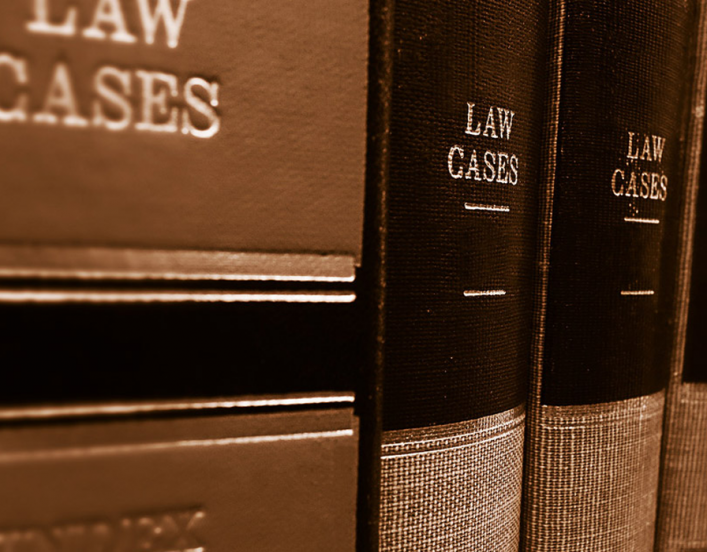Legal Case Support Grant
Funding: $5,000-$20,000
Opens: September 3
Deadline: November 15
Created in 1981, AAUW’s Legal Advocacy Fund has provided millions of dollars to balance the scales of justice for people working toward gender equity through the legal system. Legal Advocacy Fund Legal Case Support Grants are available to fund cases in state or federal court that address sex discrimination in employment or education and have the potential to set or reinforce precedent for future cases on gender discrimination.
PLEASE NOTE: AAUW does not provide legal advice or legal representation. Because we do not provide legal advice or representation, communications with us and materials sent to us are not protected by attorney-client privilege. We cannot promise that the information you share with us will remain confidential. We will not return calls or emails requesting legal advice.
For questions or technical support, please email aauw@applyists.com.
Timeline
September 3, 2024
Application opens
November 15, 2024, by 11:59 p.m., Pacific Standard Time
Deadline for online submission of application and supporting documents
January 31, 2025
Notification of decisions emailed to applicants. AAUW is not able to honor requests for earlier notification.
When a deadline or notification date falls on a weekend, the date will be observed on the following business day.
- Applicants must be individuals or classes of individuals who have filed a case in state or federal court. An attorney representing their client or class of clients may submit an application on their behalf.
- Applicants must be represented by an attorney.
- The case must address sex discrimination in employment or education, including topics like unfair pay, tenure or promotion denial, pregnancy discrimination, Title IX violations, and sexual harassment or sexual assault.
- The case should have the potential to set or reinforce precedent for future cases on gender discrimination.
- Applicants must be willing to speak publicly at AAUW events and allow AAUW to publicize support for the case internally and externally, including in the media, on the website, and in electronic and print communications.
The Legal Advocacy Fund Legal Case Support Grant Panel meets once a year to review applications to be accepted into the program. Once cases are approved, grants are awarded on a competitive basis according to funds available in a given fiscal year. Awards are based on the selection criteria outlined here. The panel’s recommendations are subject to final approval by the AAUW Director of Public Policy and Legal Advocacy. To ensure a fair review process, AAUW does not comment on the deliberations of the awards panels. Thus, AAUW is unable to provide written or oral evaluations of applicants. No provisions exist for reconsideration of grant proposals after staff have acted on the panel’s recommendations.
The following criteria apply to the selection of Legal Case Support Grants:
- Applicants must be individuals or classes of individuals who have filed a case in state or federal court. An attorney representing their client or class of clients may submit an application on their behalf.
- Applicants must be represented by an attorney.
- The case must be relevant to the mission of AAUW. It must address sex discrimination in employment or education, including topics like unfair pay, tenure or promotion denial, pregnancy discrimination, Title IX violations, and sexual harassment or sexual assault.
- The case should have the potential to set or reinforce precedent for future cases on gender discrimination.
- Applicants must be willing to speak publicly at AAUW events and allow AAUW to publicize support for the case internally and externally, including in the media, on the website, and in electronic and print communications.
Funds are distributed directly to attorneys and are available for, but not limited to, litigation-related expense categories, including:
- Depositions.
- Expert witnesses.
- Court filing and processing fees.
- Attorney’s fees.
- Postage, mailing, shipping, photocopying, duplicating.
- Litigation-related telephone and videoconference costs.
- Temporary, hourly clerical help.
- Travel expenses.
Funds are not available for the following:
- Building funds, construction, or renovations.
- Travel expenses for activities not within the scope of the case.
- Overhead or general operating expenses.
- Personal expenses, shelter, or life, medical and health insurance.
- Previous expenditures, deficits or loans.
- Fundraising activities.
AAUW regards the acceptance of a grant as a contract requiring fulfillment of the following terms:
- All grant recipients must sign a contract accepting the award. Retain these instructions, as they will become part of the grant contract if the applicant is awarded a grant.
- Grant awards are distributed in one payment, with the option to reapply for additional funding if funds become available later in the fiscal year.
- AAUW is a nonprofit, tax-exempt 501(c)(3) public charity founded for educational purposes. Thus all proposed Legal Advocacy Fund Legal Case Support Grant activities must correspond to that mission. Specific questions regarding income tax matters should be addressed to the Internal Revenue Service (IRS) or to the applicant’s personal tax adviser.
Start by clicking on the link to access the application and create an account through our vendor site. Complete all required components in the following areas.
- Eligibility. Applicants must pass the eligibility quiz to be reviewed by the selection panel.
- Plaintiff
- Attorney
- Case.
- Case name
- Court where complaint filed
- Current status
- Legal claims
- Facts
- Media mentions (not required)
- Uploads
- Complaint
- Budget.
- Budget: An itemized budget for the case funding request must be included. Budgets should reflect the estimated costs that will be incurred during the grant period that attorney is seeking to recoup.
- Budget narrative: Applicants must justify and explain each listed expense. (300-word limit)
Related
Past Cases

